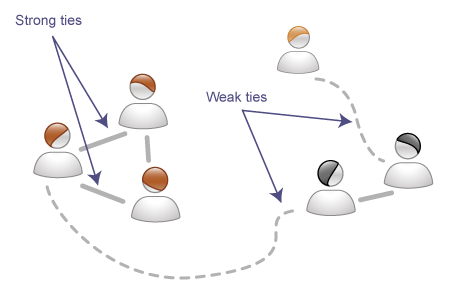Silence
I was having a conversation with a few co-workers about employee rights, civil rights, and the blaze attitude of citizens where other’s rights are concerned. This led me to thinking about the recent snafu with so-called “Tea Party” nominee Rand Paul, son of the infamous Presidential nominee Ron Paul, where Rand showed his true colors by stating (by avoidance of the issue) that private institutions not doing business with, or getting public funds from, the government have a right to discriminate.
Is that an inherent right though? Do we have a right to discriminate? The answer, as usual, is never easy. Yes we have a right to believe however we want. Since a discriminatory view is based on a preconceived notion, a belief, and everyone has a right to believe what they want then you are welcome to believe that Jesus was something other than a story, that women are inferior to men, or that black people are by their very skin color somehow less than whites. However there is no enshrined or unspoken right to act on those beliefs. Just because you believe someone will die unless you cut off their arm does not mean you get to. Likewise, if someone believes that someone of a different race, class, or gender is a lesser person does not mean they get to act on that belief. You don’t get to hire a white guy simply because he’s white, a man, or both. Private property such as someone’s house is one thing, but private property that is open to the public like a restaurant or other business where goods are for sale is no different than public property when it comes to access to those goods.
Just like the separate but equal argument, by doing such a thing you automatically create an underclass of limitations in access, opportunity, and ability. Furthermore, by saying this amendment is unnecessary you say that the people who did exercise their first amendment rights to a redress of grievances were wrong to do so. That redress, by the way, your contemporaries were on the losing side of. Get over it and stop crying.
The Bill of Rights specifically states that those rights not enshrined therein are automatically granted to the citizen (9th amendment). Does that, however, grant the protection available for the named rights to the unnamed ones? The ninth and tenth amendments specifically state that the government cannot deny those rights, but is that also implying that those rights should be enforced? It comes down to logistics eventually. How can our government protect and enforce unnamed rights? It can’t. All it can do is not deny them, which the repealing of that amendment would do.
This document was designed to enumerate not only what the government can and cannot do, but what its citizens are allowed to ask of it. Yes, we may have four thousand pages of rights unnamed in the constitution, but unless we can define them the government can just as easily say “not my problem, buddy.” Redress of grievances does not mean we will win that redress.
My suggestion to you Mr. and Mr. Pauls is thus; if you truly believe in the libertarian way of life, get out of my government, go buy an island, and live out your little Republic de Fantasy on your own. The thought of a libertarian attempting to force their viewpoint down my throat reeks of just the hypocrisy they rail against.
Just because you have a right to say whatever you want, does not mean you have a right to protection from retaliation based on those words. Such protection is only offered when you learn when to speak and when to remain …

